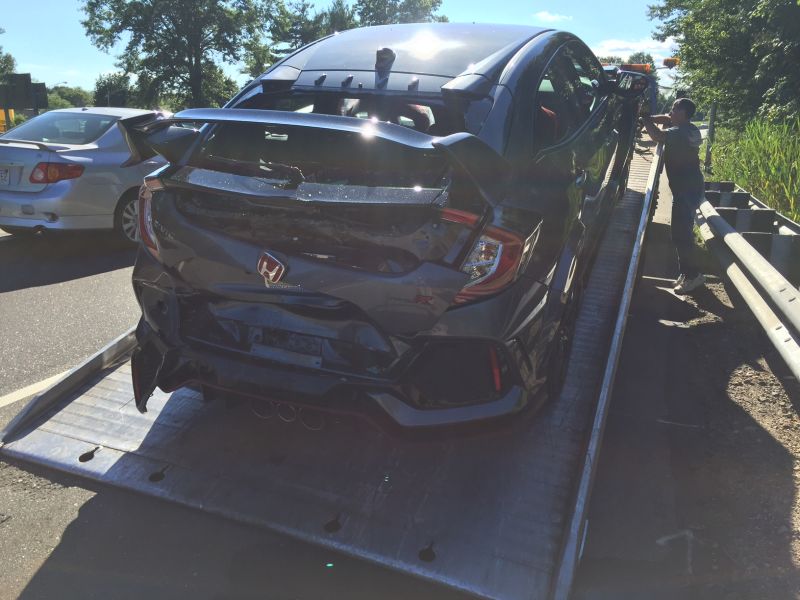Seeking your five minutes of fame? You might change your mind about being in the limelight when a news crew shows up at an accident scene. If you have been involved in a wreck, be very cautious when the cameras start rolling, because what you say can and will be used against you.

Caution: Do Not Let Public Exposure Ruin Your Accident Claim
Only serious accidents get news coverage, like this fatality crash that killed two people and a dog, or this deadly Spaghetti Bowl wrong-way driver wreck that involved four vehicles. Severe accidents lead to high-cost insurance claims. At-fault drivers may be required to pay out huge sums of money or in cases of extreme negligence, can be sued or even jailed.
Whether the accident is your fault or the blame lies with the other driver, information you give a reporter is public domain and could differ from what you want to tell an insurance adjuster later. This does not mean you are lying.
For example, consider a scenario during which the reporter asks how you are feeling. Your default response may be to answer that you are fine and you may even smile for your on-camera close-up. But when you file a claim with your insurance company and say that the injuries from your wreck have left you bedridden and depressed, guess what? The other driver’s insurance adjuster is going to use that picture of your smiling face against you and say that you were not seriously hurt.
Post-Accident Rules of Conduct
There are certain rules of conduct in the aftermath of an accident that is getting news coverage. Following these common sense guidelines in that moment will help you avoid repercussions later:
- Stick to the facts.
- Do not automatically say you are fine.
- In contrast, do not talk about how bad the damage is, any loss you might have incurred, or how horrible you feel.
- Do not apologize to the other driver or accept responsibility for the wreck.
- Do not give a detailed description of what happened.
- Do not describe your injuries.
It may be tempting to share your story, but it is imperative to keep your wits about you and use discretion. This is a tall order in such stressful situations but is possible when you realize maintaining composure is in your own best interest.
In addition to keeping on-camera commentary to a minimum, you’ll also want to avoid social media. That means no posting on Instagram, Facebook, Twitter, Snapchat, or TikTok. You may be upset and want to share your story, but there will be time for one-on-one sharing in a more private setting later, after the initial frenzy has passed.
What if You Made a Mistake by Giving Too Much Information to Reporters?
If the media has given coverage to your wreck, legal counsel should be considered mandatory. A car accident lawyer in Las Vegas can help guide you and explain your legal rights. Knowing what not to do is just as important as knowing what to do.
If you already have made mistakes in talking to reporters, relax. There is probably a remedy. A good lawyer will find ways to minimize the damage so you are not wrongfully held liable for the accident and get the financial compensation that you deserve. Your car accident is not the first to make the news nor will it be the last. The wreck may have gotten more than its fair share of publicity, but that does not mean that your case has to be compromised.
Facebook Comments